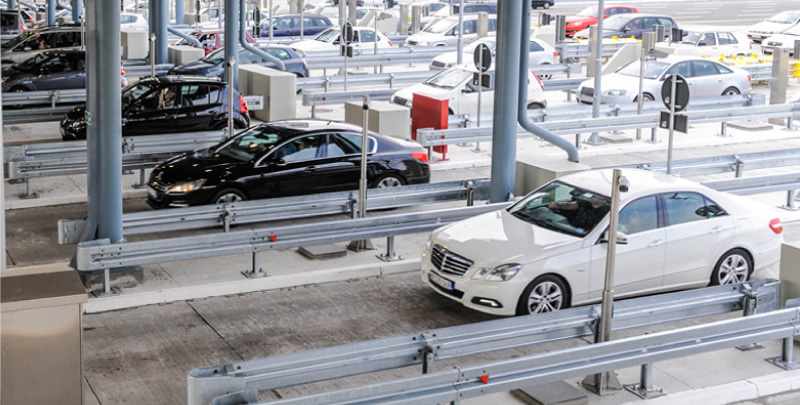FASTag rules have emerged as a convenient and efficient way to pay toll charges electronically. However, to ensure smooth implementation and to address various concerns, new rules and regulations regarding FASTag have been introduced. Whether you are a frequent traveller or an occasional road tripper, it's crucial to stay updated on these rules and regulations to avoid any inconvenience during your journey.
New FASTag rules and regulations you should know
- It is mandatory
One of the major changes in FASTag regulations is its mandatory usage. As per the new rules, FASTag is now mandatory for all vehicles, including private and commercial vehicles, passing through toll plazas on national highways. This is to promote cashless transactions, reduce traffic congestion, and enhance overall efficiency.
- Make sure the FASTag works
Every vehicle owner needs to ensure that their FASTag is in proper working condition travelling. The FASTag must be shown through the vehicle's windshield properly to ensure seamless transactions at toll plazas. Regularly checking the FASTag balance and ensuring sufficient funds are available is crucial to prevent any inconvenience during the journey.
- Waiting time
With the implementation of FASTag, With the implementation of FASTag, the waiting time at toll plazas has been reduced. However, uncertain delays may still occur due to technical glitches or issues with individual FASTag accounts. To reduce waiting time, it's advisable to maintain a sufficient balance in the FASTag account and keep the required documents handy for verification, if needed.
- Double charges without FASTag
In line with the government's push for digital transactions and to discourage cash transactions at toll plazas, vehicles without FASTag are made to pay double the toll charges. This rule encourages vehicle owners to adopt FASTag and contribute to a smoother and more efficient toll collection process.
- Third-party insurance
Another important aspect of the FASTag relies on third-party insurance wherein vehicles must have valid third-party insurance coverage to ensure compliance with insurance rules and regulations. This requirement's main objective is to enhance road safety and provide protection to vehicle owners in case of unfortunate accidents or incidents.
- Validity
FASTag comes with auto-renewal facility. Customers need not renew the validity.
- Vehicle queue
The implementation of FASTag has streamlined the vehicle queue at toll plazas, leading to faster and smoother passage for you. However, during peak hours or busy periods, queues may still form. To ease the process, drivers should maintain a safe distance from the vehicle ahead and follow the designated lanes for FASTag users.
- One FASTag per vehicle
To avoid confusion and ensure accurate toll collection, only one FASTag is permitted per vehicle. Multiple FASTags on the same vehicle can lead to incorrect charges or system errors. It is therefore recommended that customers close all their older tags before getting a new tag issued as it will help in mapping one active tag with one vehicle. In cases where customers do not close all their older active tags, the NPCI will automatically close the older active tags within 15 days after a new tag is issued on the customers vehicle.
Also Read:
A guide to FASTag and how it works
Conclusion
The new rules and regulations surrounding FASTag are aimed at enhancing the efficiency and effectiveness of toll collection on national highways. By making FASTag mandatory, and promoting digital payments, the government seeks to create a seamless and hassle-free travel experience.
As responsible vehicle owners, it's crucial to adhere to these regulations and contribute to the ongoing efforts to modernise India's transportation system.
You can easily get FASTag at all branches of Axis Bank. By embracing FASTag and staying informed about its rules, you can collectively contribute to a safer, smoother, and more convenient journey on our highways.
Disclaimer: This article is for information purpose only. The views expressed in this article are personal and do not necessarily constitute the views of Axis Bank Ltd. and its employees. Axis Bank Ltd. and/or the author shall not be responsible for any direct / indirect loss or liability incurred by the reader for taking any financial decisions based on the contents and information. Please consult your financial advisor before making any financial decision.








